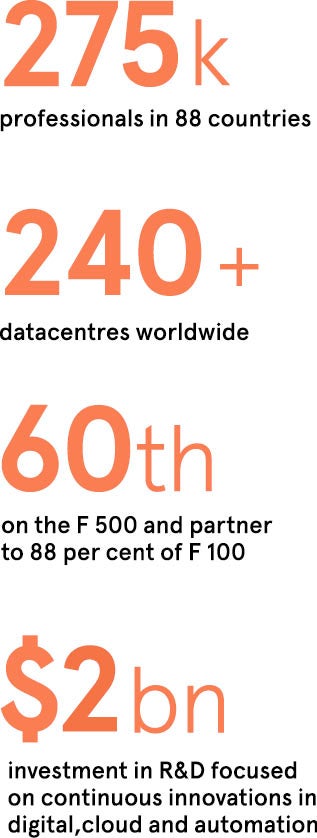At the heart of a major inflexion point in IT, automation is driving a revolution in outsourcing, which traditionally was turned to principally for cost-reduction.
Now, with new technologies such as artificial intelligence, machine-learning, automation and the growing pervasiveness of more modern delivery methods including DevOps, IT outsourcing is changing rapidly.
 The recent lack of headcount growth at pure-play IT service providers demonstrates the stagnant appetite among organisations for the traditional global delivery model that has typified outsourcing to date.
The recent lack of headcount growth at pure-play IT service providers demonstrates the stagnant appetite among organisations for the traditional global delivery model that has typified outsourcing to date.
“Whether it is through the rise of the internet of things, the data explosion, mobility, microservices architectures, next-generation automation – the list goes on – the strategic need is for truly agile, fluid IT organisations capable of delivering material, ‘change the business’ results,” says Simon Winter, head of NTT DATA Services’ Europe, Middle East and Africa region.
However, most IT operating models are not built for this level of visibility and speed of change, and they are certainly not suitable for managing enterprise-wide automation. They lack a central function for automation, which businesses need if they want to survive and thrive in an automated world.
“Organisations need to create the foundations of a truly automated enterprise correctly,” says Mr Winter. “They require an operating model that allows them to create, manage, deprecate and audit their ‘automata’. Our approach is to harness best-of-breed tools from the market and integrate them with our own IP to create an adaptive ecosystem that services the needs of our customers from an automation perspective.
“If organisations do not have a plan to address automation today, I expect they will suffer increased competitive threats as a result.”
Durvesh Ganveer, global solution consulting lead for NTT DATA Services, adds: “The moment you start exploring transformative automation, you realise that it cuts across traditional IT organisational boundaries. Successfully navigating the associated IT organisational ‘change journey’ becomes critical.
“Organisations need help to understand the business and services contexts, and they need to have the ability to manage the automated enterprise without building a legacy of the future.”
Rapid developments in cognitive capabilities in recent years have not only readied automation technologies for the enterprise, but also made them more cost effective. This has been accelerated by the vast improvement in the ability of virtual agents to process and understand humans through natural language processing.
“The key to success is not to focus on people replacement, but removing and automating the work itself. Thus effective process automation with a high focus on quality is also critical,” says Kris Fitzgerald, vice president and chief technology officer at NTT DATA Services.
“By front-ending certain work requests with virtual agents and having automated numerous tasks, if a human still had to engage, they would be aware of the matter and what had already been tried.”
An existing shortage in IT skills is being exacerbated by the rise of automation. With the role of IT in business changing to a front-line enabler of business transformation, the market requires enhanced skills to augment the capabilities that traditional outsourcers can bring to the table.
The days of just outsourcing everything to reduce costs are gone. Organisations require service providers that can advise wisely on the process of evaluating the efficacy of automation of IT service transactions, and then evaluating what should be kept in-house and what should be outsourced. Increasingly, that discussion involves C-suite executives who traditionally didn’t discuss technology.
“We’re still very much engaged with chief information officers, but our conversations now also include chief executives and chief marketing officers,” says Mark Devonshire, vice president at NTT DATA Services. “Cost is, of course, still important to those conversations, but executives are just as interested in how to enable transformation and how our engagement drives top-line revenue growth as part of the business change.”
For more information please visit nttdataservices.com

